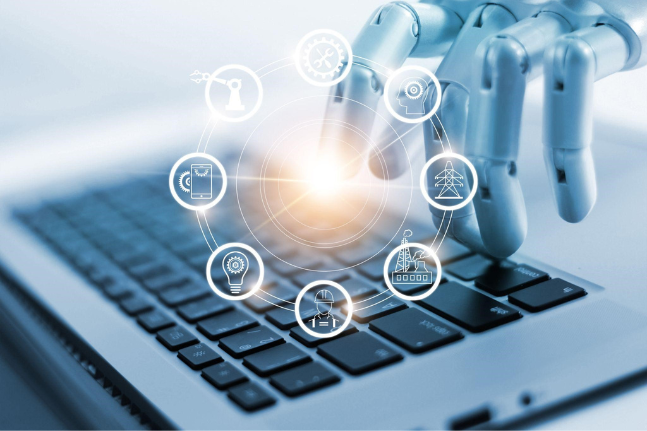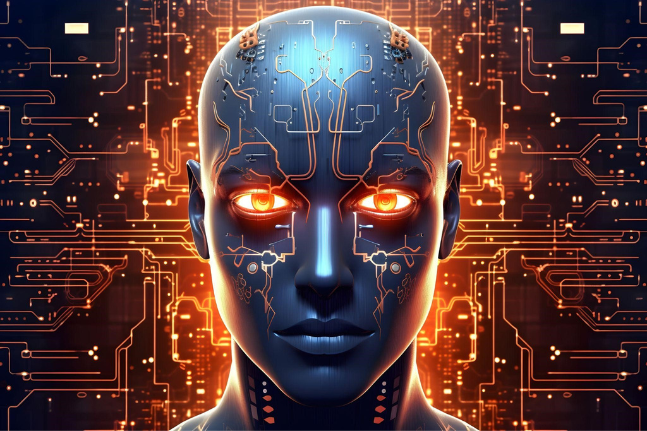Whether AI will ultimately be a danger to humanity or its saving grace is open to debate—in the meantime, however, it’s doing a remarkably good job of streamlining business processes. AI agents, in particular (intelligent systems that perform specific tasks without human intervention) are helping organizations to operate more efficiently and allowing employees to focus on strategic and creative tasks. As AI continues to evolve, it holds significant promise for transforming how we work and collaborate.
Automation: freeing human creativity
One of the most visible impacts of AI agents is the automation of repetitive and mundane tasks. From data entry and scheduling to customer support, AI agents can now perform routine activities that once occupied significant portions of an employee’s time. In sectors such as finance, customer service, and manufacturing, AI is streamlining processes by taking over tasks like managing invoices, handling inquiries, and monitoring, allowing human workers to focus on more complex and strategic functions.
For instance, in the finance industry, AI has transformed customer experiences by automating back-office tasks such as account reconciliations and fraud detection. With employees who traditionally performed these tasks now concentrating on more high-value activities such as investment advice and financial planning, this shift is leading to far more productive workforces.
Collaboration in hybrid teams: humans and AI working together
As AI agents become more integrated into workplaces, we’re seeing the rise of hybrid teams, where humans and AI collaborate closely. These teams share tasks, with AI agents typically handling data-intensive, repetitive jobs, while humans focus on roles that require emotional intelligence and creativity. With AI agents able to quickly analyze vast quantities of data and provide insights, human team members can interpret these insights and make decisions based on experience.
In the hospitality industry, for example, AI-driven chatbots handle basic customer queries, allowing human employees to focus on creating personalized guest experiences. With AI augmenting human capabilities rather than replacing them, these collaborations vastly improve productivity and result in far more reliable and accurate outcomes.
Reskilling and upskilling
With AI taking on more responsibilities in the workplace, there is a growing need for reskilling and upskilling within the workforce. The acquisition of new knowledge, particularly in the realm of digital literacy, AI comprehension, and data management, will be key to adapting to this changing arena—so much so that the rise in demand for digitally skilled workers is expected to outweigh the number of jobs that will be displaced as a result of the technology.
Process optimization
More than just automating tasks, AI agents optimize business processes, identifying inefficiencies, reducing errors, and improving decision-making.
In the finance sector, AI-driven algorithms are helping firms reduce human error in areas such as compliance, where even minor mistakes can be extremely costly. It’s the same story in the manufacturing industry, where AI-powered machines monitor equipment for potential malfunctions, reducing downtime and increasing output quality.
Ethics and fairness
Amid all this good news, there are, of course, ever-present concerns about bias, transparency, and fairness in AI-driven systems. AI relies on vast datasets, and if these datasets contain biases, an AI’s decisions can perpetuate unfair outcomes, especially in hiring, promotions, and performance evaluations.
To ensure that AI is implemented fairly and ethically, organizations need to prioritize transparency and accountability. This includes carefully curating the data used to train AI models, regularly auditing AI systems to detect and correct biases, and providing clear explanations for AI-driven decisions. Additionally, companies will need to develop policies that promote responsible AI use to make sure that both employees and customers can trust these systems.
How SoftAge AI is shaping the future

At SoftAge AI, our expertise in data management and AI-driven solutions puts us at the very heart of this business transformation. From language and tool data to model evaluation, we deliver the tailored AI resources that businesses need to stay at the forefront of efficiency and productivity.
What’s more, we’re expanding the cultural and linguistic horizons of AI in the process. Our vision has always been about empowering individuals and businesses through technology and innovation while maintaining a firm focus on fairness and ethical responsibility. Creating state-of-the-art LLMs (Large Language Models) using highly-quality training data, we deliver solutions that cater to a truly global community of businesses.
With AI changing the game within the modern business arena, SoftAge AI guarantees that all businesses can play, irrespective of their location and culture.
About SoftAge AI
SoftAge AI specializes in data management and AI-driven solutions, with a strong focus on linguistic diversity. Leveraging its extensive experience and innovative approaches, SoftAge AI is advancing digital transformation in India while preserving its rich cultural and linguistic heritage.



